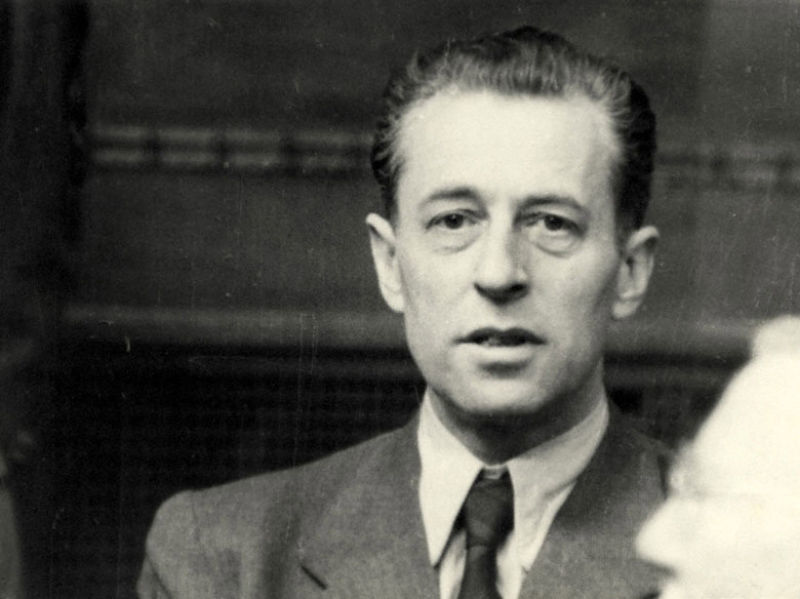The radio host Hans Fritzsche appeared before the Nuremberg Tribunal almost by accident: after Goebbels' suicide, he was the only official of The Reich Ministry of Public Enlightenment and Propaganda who could be interrogated during the tribunal’s sessions. The fact that he was the lowest-ranking Nazi among the defendants by a long way was no longer important.
Young media manager
August Franz Anton Hans Fritzsche was born on 21 April 1900 in the Westphalian city of Bochum. He was the second child of a Prussian postal employee and went to school in Dresden and Leipzig. He volunteered for the First World War while still a schoolboy.
Between April and October 1918, he served in the 6th Cavalry Rifle Division in Flanders. After the war, he studied philology, history and philosophy at the universities of Greifswald and Berlin, but did not receive a doctorate.
In 1923 he joined the conservative German National People’s Party and became editor of the monthly magazine “Preußischen Jahrbücher“ (Prussian yearbooks). Between 1924 and 1932, Fritzsche was the editor of a telegraphic agency and editor-in-chief of the international news service – a branch of the Gutenberg publishing empire. In 1932 he was appointed head of the German Radio News Service.
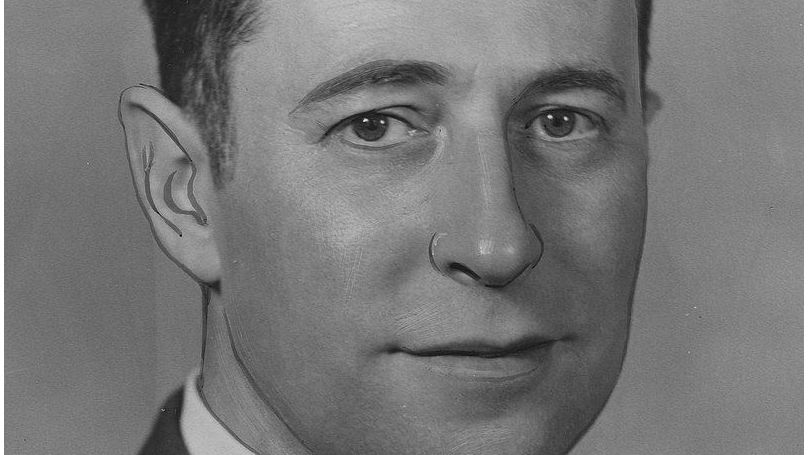
Mouthpiece for Goebbels
When the Nazis came to power, Josef Goebbels - head of the newly created Ministry of Public Enlightenment and Propaganda - needed loyal and capable reporters and employed Fritzsche, making him head of the news service’s press department.
“The Nazis seized power on 30 January 1933. From Paragraph 10 of the Fritzsche affidavit we find that that very evening, 30 January 1933, two messengers from Goebbels visited Fritzsche,” Drexel Sprecher told the tribunal. “These two messengers told Fritzsche that although Goebbels was angry with him for having written something critical about Hitler, Goebbels still respected the success Fritzsche had enjoyed on radio since the preceding autumn. They also said that Goebbels wanted to keep Fritzsche as Head of the Radio News Service on certain conditions: first, that Fritzsche sack all Jews; second that he sack all other personnel who would not join the NSDAP (Nazi Party); and third, that he employ Goebbels’ second messenger, Hans Heinz Sadila-Mantau. Fritzsche rejected all these conditions except to hire Sadila-Mantau.”
Fritzche’s main responsibility was to explain to German editors what they were allowed to publish and what was forbidden. On 1 May 1933, he joined the Nazi Party and later the SA (The Sturmabteilung, or– “Storm Detachment“). “Since then, no matter what doubts Fritzsche had about the Nazi regime, he remained its staunch supporter,” Sprecher said.
Substantial sums had been allocated to establish a Nazi information service. The Reich increased the budget of German news agencies by about tenfold, from 400,000 to 4 million marks. Fritzsche himself selected and invited the editor-in-chief of the information agency "Transocean" and the agency “Europa Press”.
In 1942, Fritzsche performed a short-term propaganda campaign on the Eastern Front, and in November he left the press department and took charge of the radio broadcasting department. His new position, “Plenipotentiary for the Political Organisation of the Greater German Radio” gave him an audience of 16 million radio listeners.
Each show began with the words “Es spricht Hans Fritzsche!” (“Hans Fritzsche speaks!”) which made him the most popular commentator of the Third Reich. The Germans, fed up with ordinary party speakers after nine years of Nazi dictatorship, appreciated his clear voice and well-chosen arguments.
“The influence Fritzsche's broadcasts had on the German people, while the Nazi conspirators were consolidating their control, is all the more important since Fritzsche was head of the Wireless News Services, who controlled the news that the government wanted to spread by radio,” Sprecher highlighted.
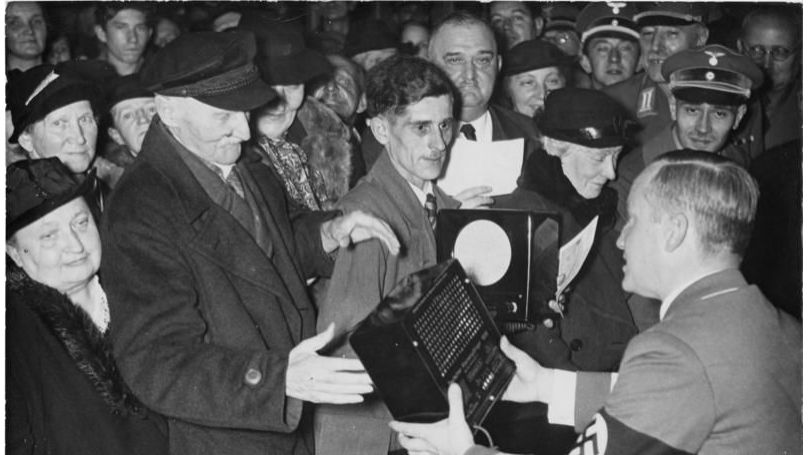
Propaganda virtuoso
Although Goebbels and Fritzsche were in the same business, they never became friends. The Minister admired Fritzche’s work, but never expressed approval of him personally. As well as his work at the radio station, Fritzche, as head of the German Press Service, was responsible for international telegraph services and nearly 2,000 daily newspapers and magazines. He often chaired meetings with numerous representatives of the most influential German newspapers and met journalists to tell them the official Nazi line.
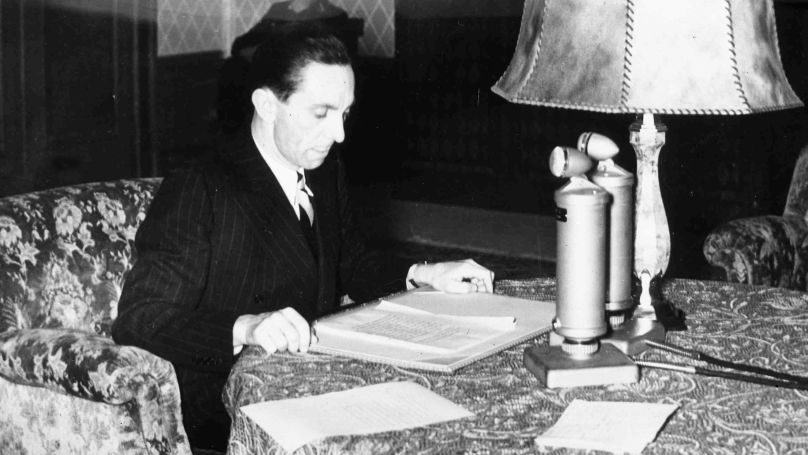
Like Goebbels, Fritzsche constantly invoked the ideals espoused in Adolf Hitler’s "Mein Kampf”: he spoke of the “international Jewish conspiracy", "plutocracy", "the Bolshevik danger", "the living space" and "the principle of the Führer". He praised the “Führer’s geniality” and the fact that no one in German history had achieved so much in five years without firing a single shot. He applauded the partition of Czechoslovakia, the occupation of Poland, the attack on Yugoslavia and other acts of Nazi aggression.
"The fate of Jewry in Europe has turned out to be as unpleasant as the Führer predicted it would be in the event of a European war," Fritzsche said in a radio broadcast of 18 March 1941. “After the extension of the war instigated by Jews, this fate may also spread to the New World, for it can hardly be assumed that the nations of this New World will pardon the Jews for the misery of which the nations of the Old World did not absolve them.”
When the Second World War broke out, Fritzsche reported on the glorious victories of the Third Reich and admired economic potential of the conquered territories for the Reich. But when the failures on the Soviet battlefield began, the propaganda office faced significant challenges.
Fritzsche spoke of the cruelty of the Russians and their Western Allies and convinced his listeners of the imminent threat they faced, and overlooked the crimes committed by German soldiers. He even used anti-Hitler propaganda, readily quoting the London newspaper "News Chronicle", which said: "We are for the destruction of all life in Germany - men, women, children, birds and insects."
Sprecher said: “Although we cannot say that Fritzsche directed that 10,000 or 100,000 persons should be exterminated, we ought to weigh this question: without being incited by Fritzsche, how much harder would it have been for the Nazi conspirators to exterminate millions of people in the East?”
Who surrendered Berlin?
Fritzsche was at his desk until the very last hours of the war although he faced new challenges. At the end of April 1945, he was present in the Berlin Führerbunker and after Hitler’s suicide on 30 April 1945, Goebbels became the new Reich chancellor. On 1 May, Goebbels dictated a letter to Colonel-General Vasily Chuikov, commander of the 8th Guards Army, requesting a temporary cease-fire. It was relayed to him that the Soviet Union would accept unconditional surrender only. Goebbels decided that further efforts were futile and committed suicide; so did his wife and six children.
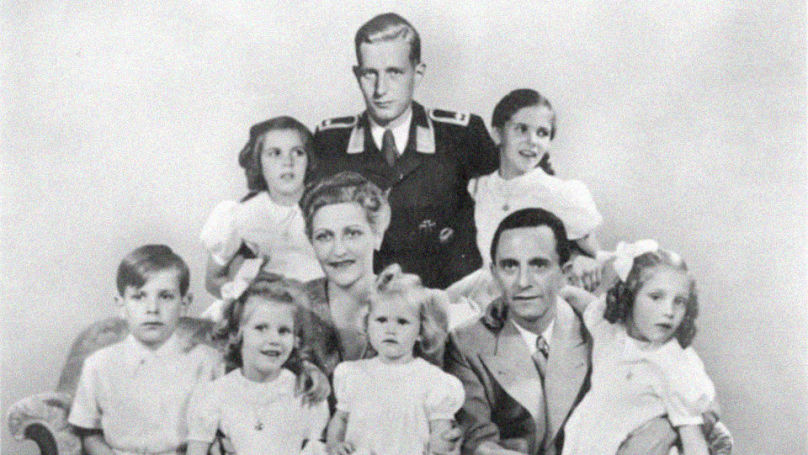
Fritzsche tried to take matters into his own hands. Seeing the turmoil into which the Berlin leadership had been thrown (the new Reichspräsident Karl Dönitz moved the residence to Flensburg in the north of Germany), he went to his office at Wilhelmplatz and wrote a letter of surrender to the commander of the 1st Belorussian Front, Marshal Georgy Zhukov. Then, despite the opposition of the German military, on 2 May he reached the Soviet positions and surrendered the city as a senior official. After capitulation, he helped the Red Army soldiers to identify the bodies of the Goebbels family and later became a prisoner of war.
He was first kept in a basement in Berlin and then taken to Moscow to the Lubyanka detention centre. According to Fritzsche, once there he was placed in a "standing coffin" - a three-foot cell – his three gold teeth were pulled out and he was put on a diet of bread and water. In the autumn, the former radio host was transferred to Nuremberg, where he appeared before the tribunal.
Most controversial defendant
Although no one was really sympathetic to his propaganda activities, the inclusion of a middle-ranking official among the list of the Nazi criminal hierarchy gave rise to many questions. The logic of the trial required an indictment for the work of the Nazi propaganda machine. But Goebbels was dead, Julius Streicher, about whom we will report in the next publication, was not quite suitable, and so the Soviet leadership insisted Fritzsche appear among the defendants.
“The Defendant Fritzsche used the foregoing positions and his personal influence to disseminate and exploit the principal doctrines of the Nazi conspirators set forth in Count One of the Indictment, and to advocate, encourage, and incite War Crimes set forth in Count Three of the Indictment and the Crimes against Humanity set forth in Count Four of the Indictment to be committed, including, particularly, anti-Jewish measures and the ruthless exploitation of occupied territories,” the assistant American Prosecutor noted at the Nuremberg Trial.
However, although the public was hostile to the other defendants at the tribunal, Fritzsche was viewed almost with sympathy. “No one in the courtroom, including Fritzsche, seemed to know why he was there — he was too small a fry — unless it were as a ghost for Goebbels, and he was acquitted,” the American journalist William Shirer, who worked in the Third Reich and then covered the Nuremberg trials, noted.
Fritzsche himself expressed regret about his role in front of the tribunal. He said that he had been deceived and wasn`t aware of the real situation. Decades later, historians discovered that the radio show host knew perfectly well about many of the Nazi crimes and had deliberately misinformed listeners, but during the tribunal it was impossible to prove.
Sources:
Encyclopedia of the Third Reich
Constantine Zalessky. Who is in the Third Reich. Bibliographic dictionary
William Shirer. The Rise and Fall of the Third Reich
Nuremberg Trials Stenograph, Volumes I, IV, V, Translated from English by Sergey Miroshnichenko.
Joachim Fest. Inside Hitler's Bunker
Max Bonacker: Goebbels’ Mann beim Radio. Der NS-Propagandist Hans Fritzsche (1900–1953)
By Daniil Sidorov
